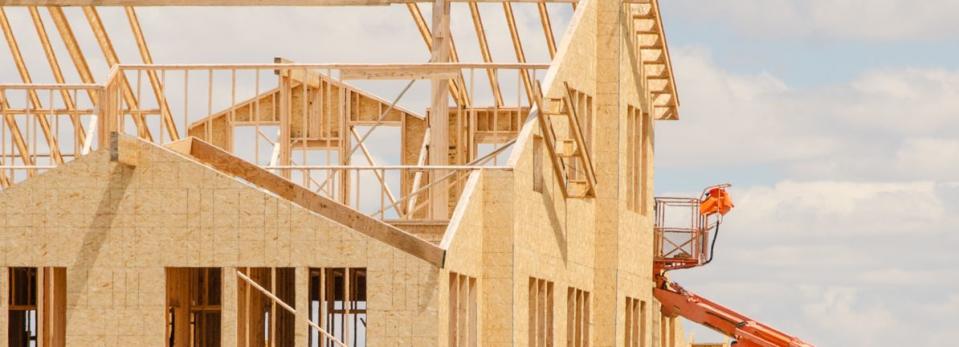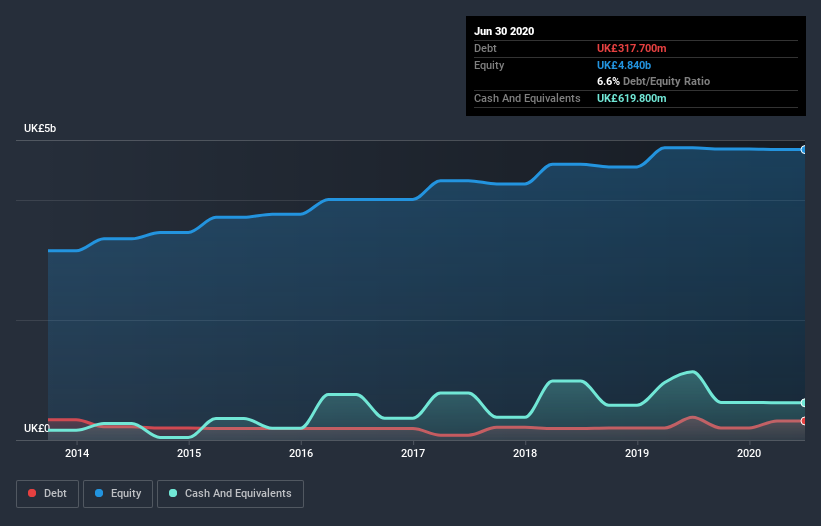Barratt Developments (LON:BDEV) Has A Somewhat Strained Balance Sheet

Legendary fund manager Li Lu (who Charlie Munger backed) once said, 'The biggest investment risk is not the volatility of prices, but whether you will suffer a permanent loss of capital.' When we think about how risky a company is, we always like to look at its use of debt, since debt overload can lead to ruin. We note that Barratt Developments plc (LON:BDEV) does have debt on its balance sheet. But should shareholders be worried about its use of debt?
When Is Debt Dangerous?
Debt assists a business until the business has trouble paying it off, either with new capital or with free cash flow. Part and parcel of capitalism is the process of 'creative destruction' where failed businesses are mercilessly liquidated by their bankers. However, a more usual (but still expensive) situation is where a company must dilute shareholders at a cheap share price simply to get debt under control. Having said that, the most common situation is where a company manages its debt reasonably well - and to its own advantage. When we examine debt levels, we first consider both cash and debt levels, together.
View our latest analysis for Barratt Developments
What Is Barratt Developments's Net Debt?
You can click the graphic below for the historical numbers, but it shows that Barratt Developments had UK£317.7m of debt in June 2020, down from UK£377.7m, one year before. However, it does have UK£619.8m in cash offsetting this, leading to net cash of UK£302.1m.
How Strong Is Barratt Developments's Balance Sheet?
We can see from the most recent balance sheet that Barratt Developments had liabilities of UK£1.47b falling due within a year, and liabilities of UK£558.2m due beyond that. Offsetting this, it had UK£619.8m in cash and UK£70.3m in receivables that were due within 12 months. So its liabilities total UK£1.33b more than the combination of its cash and short-term receivables.
While this might seem like a lot, it is not so bad since Barratt Developments has a market capitalization of UK£4.61b, and so it could probably strengthen its balance sheet by raising capital if it needed to. But we definitely want to keep our eyes open to indications that its debt is bringing too much risk. Despite its noteworthy liabilities, Barratt Developments boasts net cash, so it's fair to say it does not have a heavy debt load!
In fact Barratt Developments's saving grace is its low debt levels, because its EBIT has tanked 35% in the last twelve months. Falling earnings (if the trend continues) could eventually make even modest debt quite risky. The balance sheet is clearly the area to focus on when you are analysing debt. But it is future earnings, more than anything, that will determine Barratt Developments's ability to maintain a healthy balance sheet going forward. So if you're focused on the future you can check out this free report showing analyst profit forecasts.
Finally, a company can only pay off debt with cold hard cash, not accounting profits. Barratt Developments may have net cash on the balance sheet, but it is still interesting to look at how well the business converts its earnings before interest and tax (EBIT) to free cash flow, because that will influence both its need for, and its capacity to manage debt. Looking at the most recent three years, Barratt Developments recorded free cash flow of 31% of its EBIT, which is weaker than we'd expect. That's not great, when it comes to paying down debt.
Summing up
Although Barratt Developments's balance sheet isn't particularly strong, due to the total liabilities, it is clearly positive to see that it has net cash of UK£302.1m. So although we see some areas for improvement, we're not too worried about Barratt Developments's balance sheet. In light of our reservations about the company's balance sheet, it seems sensible to check if insiders have been selling shares recently.
When all is said and done, sometimes its easier to focus on companies that don't even need debt. Readers can access a list of growth stocks with zero net debt 100% free, right now.
This article by Simply Wall St is general in nature. It does not constitute a recommendation to buy or sell any stock, and does not take account of your objectives, or your financial situation. We aim to bring you long-term focused analysis driven by fundamental data. Note that our analysis may not factor in the latest price-sensitive company announcements or qualitative material. Simply Wall St has no position in any stocks mentioned.
Have feedback on this article? Concerned about the content? Get in touch with us directly. Alternatively, email editorial-team@simplywallst.com.

 Yahoo News
Yahoo News 
